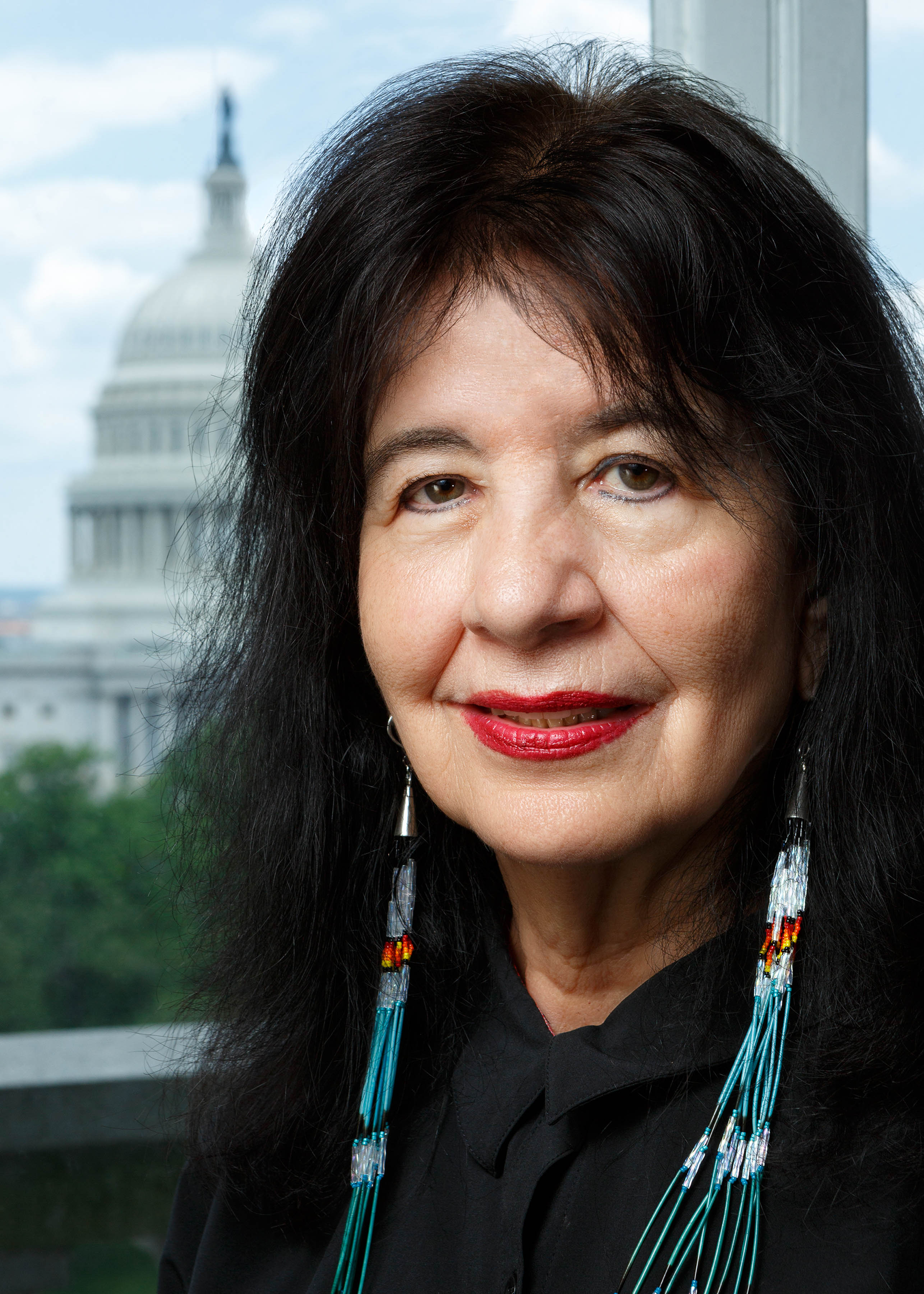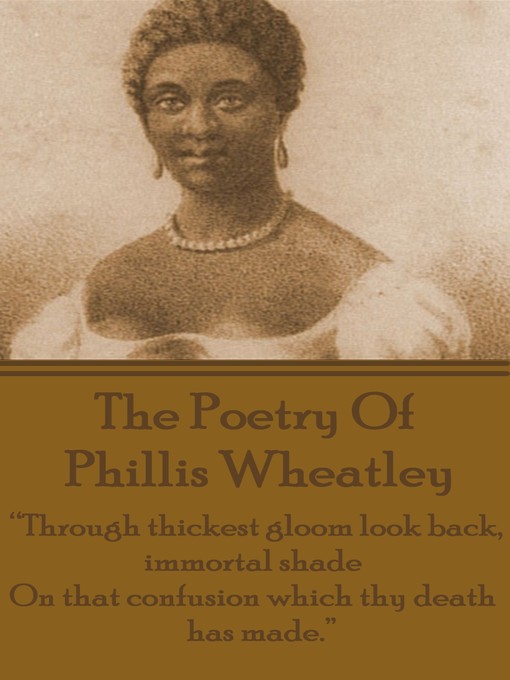
Launched by the Academy of American Poets in April 1996, National Poetry Month is a special occasion that celebrates poets' integral role in our culture and that poetry matters. Over the years, it has become the largest literary celebration in the world, with tens of millions of readers, students, K-12 teachers, librarians, booksellers, literary events curators, publishers, families, and-- of course-- poets, marking poetry's important place in our lives.

When I was little, my dad told me about Anandpur Sahib and the court of Guru Gobind Singh. That we came from a tradition of poets, warriors and artists who created when it was illegal to create... we're groomed to be reckless in the defense of what we feel is right.
-Rupi Kaur
Photo Credit: Rupi Kaur, Canadian Performance Artist by P.L. Tandon (CC BY-NC-SA 2.0 DEED)

The moment of change is the only poem.
-Adrienne Rich
Photo Credit: Adrienne Rich by K. Kendall (CC BY 2.0)

I am not less poet; I am more conscious of all that I am, am not, and might become.
-Jean Toomer
Photo Credit: Drawing of Jean Toomer by Winold Reiss by J.hansen.23 (CC BY PD)

If I feel physically as if the top of my head were taken off, I know that is poetry. These are the only ways I know it. Is there any other way?
-Emily Dickinson
Photo Credit: Emily Dickinson daguerreotype 1847 by Amherst College (CC BY PDM 1.0 DEED)

If the world is safe for poetry, it can be safe for many other things.
-Anne Waldman
Photo Credit: Anne Waldman Reading 2.16.15 by Kelly Writers House (CC BY 2.0 DEED)

The poem, the song, the picture, is only water drawn from the well of the people, and it should be given back to them in a cup of beauty so that they may drink - and in drinking understand themselves.
-Federico Garcia Lorca
Photo Credit: Federico García Lorca en un patio de la Alhambra de Granada, circa 1922 by Colección Fundación Federico García Lorca (CC BY PD-US)

Ada Limón was appointed U.S. Poet Laureate in July of 2022 by the Library of Congress, making her only the second honoree of Latino heritage in the role. The winner of a National Book Critics Circle Award for her 2018 volume The Carrying, Limón has also connected with poetry fans via the radio show and podcast The Slowdown, which she hosts for American Public Media.... Full bio
Photo Credit: Library of Congress Life, CC0, via Wikimedia Commons

Hailed as one of the top Mexican-American writers in the United States, Gary Soto is also one of the most versatile. Winning awards and acclaim for his poetry in the years after he completed his education, Soto has also written short stories and autobiographical sketches. Almost single-handedly, he has striven to create a literature for young Mexican-American readers. Much of Soto's writing is drawn on his recollections of growing up poor in California's agricultural Central Valley.... Full bio
Photo Credit: 2017 Library Laureates Benefit Gala: Gary Soto by Friends of the San Francisco Public Library (CC BY-NC-SA 2.0 DEED)

Native American Joy Harjo (born 1951) is a multi-faceted writer, artist, and musician. Trained first as a painter, Harjo shifted her attention to poetry during her undergraduate studies at the University of New Mexico. Of Muscogee Creek heritage, Harjo often draws on Native American spirituality and culture in her work, spotlighting feminist concerns and musical themes as well. In 2019, Harjo was named United States Poet Laureate, making her the first Native American to earn the title.... Full Bio
Photo Credit: Library of Congress Life, CC0, via Wikimedia Commons

The American poet Allen Ginsberg (1926-1997) was one of the most celebrated figures in contemporary American literature. He was a leading member of the "Beat Movement" and helped lead the revolt against "academic poetry" and the cultural and political establishment of the mid-20th century.... Full bio
Photo Credit: Allen Ginsberg 1979 by Hans van Dijk for Anefo. (CC BY CCO 1.0 DEED)

Amanda Gorman is a Black American poet and the inaugural National Youth Poet Laureate of the United States. Gorman earned the prestigious distinction in 2017 when she was a student at Harvard University. Previously, Gorman had served as a youth delegate for the United Nations and as the founder and executive director of One Pen One Page, a nonprofit group that promotes literacy through creative writing... Full Bio
Photo Credit: Chairman of the Joint Chiefs of Staff from Washington D.C, United States CC BY 2.0, via Wikimedia Commons

One of the most talented and prolific writers to emerge from the Harlem Renaissance of the 1920s, Langston Hughes enjoyed a long and successful career as a poet and author of short stories, novels, magazine and newspaper articles, plays, and numerous other works.... Full bio
Photo Credit: Langston Hughes by Jack Delano/user Holly Cheng (CC BY PD)

Author Alice Walker had been an acclaimed poet, short story writer, and novelist since the late 1960s, long before her Pulitzer Prize-winning 1982 book The Color Purple and its 1985 film adaptation stirred emotions for its brutal portrayal of domestic violence. Walker embraces complex and painful topics.... Full bio
Photo Credit: Alice Walker, Auditorium Speaker by American Library Association (CC BY-NC-SA 2.0 DEED)

One of the best-known African American poets to reach prominence during the late 1960s and early 1970s, Nikki Giovanni has continued to create poems that encompass a life fully experienced. Her unique and insightful verses testify to her own evolving awareness and experiences as a woman of color: from child to young woman, from naive college freshman to seasoned civil rights activist, and from daughter to mother. Frequently anthologized, Giovanni's poetry expresses strong racial pride and respect for family.... Full bio
Photo Credit: Nikki Giovanni at the 2023 Hyde Park Jazz Festival by Goose Green Photography (CC BY 4.0 DEED)

The American poet Edward Estlin Cummings (1894-1962) presented romantic attitudes in technically experimental verse. His poems are not only ideas but crafted physical objects which, in their nonlogical structure, grant fresh perspectives into reality.... Full bio
Photo Credit: Cummings in 1953 by Walter Albertin (CC BY NO KNOWN RESTRICTIONS)

In addition to her books of autobiography, Angelou wrote several volumes of poetry that further explore the South, racial confrontation, and the triumph of black people against overwhelming odds.... Full bio
Photo Credit: Portrait photograph of Maya Angelou with a copy of I Know Why the Caged Bird Sings in Los Angeles, November 3, 1971 by FunnyMath (CC BY PD)

Unquestionably one of America's major writers, Edgar Allan Poe (1809-1849) was far ahead of his time in his vision of a special area of human experience--the "inner world" of dream, hallucination, and imagination. He wrote fiction, poetry, and criticism and was a magazine editor. More than a century after his death, Poe continued to inspire many prominent authors.... Full bio
Photo Credit: Edgar Allen Poe by Mathew Benjamin Brady (CC BY PD)

Phillis Wheatley (ca. 1753-1784), the first African American woman poet, was a celebrated literary figure in Boston during the Revolutionary era.... Full bio
Photo Credit: Memoir and Poems of Phillis Wheatley by William S. Pendleton (CC BY PD)

Ezra Pound 's influence on the development of poetry in the twentieth century has unquestionably been greater than that of any other poet. No other writer has written as much poetry and criticism or devoted as much energy to the advancement of the arts in general. Nor has any writer been the focus of so much or such heated controversy.... Full bio
Photo Credit: Ezra Pound 1963 by Walter Mori by user Materialscientist (CC BY PD)

The insistent moral tone, sentimentality, and serene idealism of the American poet Henry Wadsworth Longfellow (1807-1882) made him an extremely popular author at home and abroad in the 19th century.... Full bio
Photo Credit: Henry Wadsworth Longfellow by Hanstaingl. (CC BY PD/Project Gutenberg)

Robert Lee Frost (1874-1963) was an intentionally American and traditionalist poet in an age of internationalized and experimental art. He used New England idioms, characters, and settings, recalling the roots of American culture, to get at universal experience. Even in the 21st century, Frost and his work continue to be studied by scholars around the world.... Full bio
Photo Credit: Robert Frost by Walter Albertin (CC BY PD/NO RIGHTS RESTRICTIONS KNOWN)

Thomas Stearns Eliot (1888-1965), American-English author, was one of the most influential poets writing in English in the 20th century, one of the most seminal critics, an interesting playwright, and an editor and publisher.... Full bio
Photo Credit: T.S. Eliot by Ellie Koczela (CC BY-SA 4.0 DEED)
 The Poetry of Phyllis Wheatley
The Poetry of Phyllis Wheatley
 Poet's View: Intimate Profiles of Five Major Poets
Poet's View: Intimate Profiles of Five Major Poets